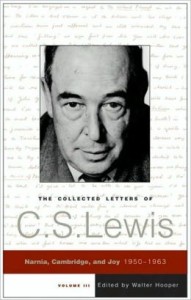 C. S. Lewis’s attitude toward money is fascinating. He was no economist, and if he could have lived without having to think about money ever again, he would have been most happy.
C. S. Lewis’s attitude toward money is fascinating. He was no economist, and if he could have lived without having to think about money ever again, he would have been most happy.
In his early years, before he became famous, he had to be very careful with his expenses, so one might think that when the money started rolling in after the publication of his quite popular books, he could have relaxed and used all that extra funding as a buffer.
Yet, from the start, once The Screwtape Letters began the money flow, he kept none for himself. Every bit of his royalties, from whatever publication, went into a fund that was dispensed to those in need.
One prime example was an American lady, Mary Willis Shelburne, with whom he corresponded for more than a decade. She was constantly worried about her financial situation. His response was to work out an arrangement with his publisher to send her a monthly check from the sales of his books.
In Mere Christianity he laid out what he believed should be the proper perspective for a Christian:
One of the dangers of having a lot of money is that you may be quite satisfied with the kinds of happiness money can give and so fail to realise your need for God. If everything seems to come simply by signing checks, you may forget that you are at every moment totally dependent on God.
 In one of his earliest letters to Shelburne, though, we get a glimpse into his own insecurities regarding money. He is terribly honest when he writes,
In one of his earliest letters to Shelburne, though, we get a glimpse into his own insecurities regarding money. He is terribly honest when he writes,
I’m a panic-y person about money myself (which is a most shameful confession and a thing dead against Our Lord’s words) and poverty frightens me more than anything else except large spiders and the tops of cliffs: one is sometimes even tempted to say that if God wanted us to live like the lilies of the field He might have given us an organism more like theirs! But of course He is right. And when you meet anyone who does live like the lilies, one sees that He is.
I think that’s one of the most endearing things about Lewis—he knows the truth, compares his own inner fears with that truth, confesses his weaknesses, yet comes right back to the bedrock foundation of his faith, regardless of his fears.
He was not superhuman. He suffered from the same concerns as anyone else. Yet, even through his expressed concerns, we see what genuine faith looks like.
